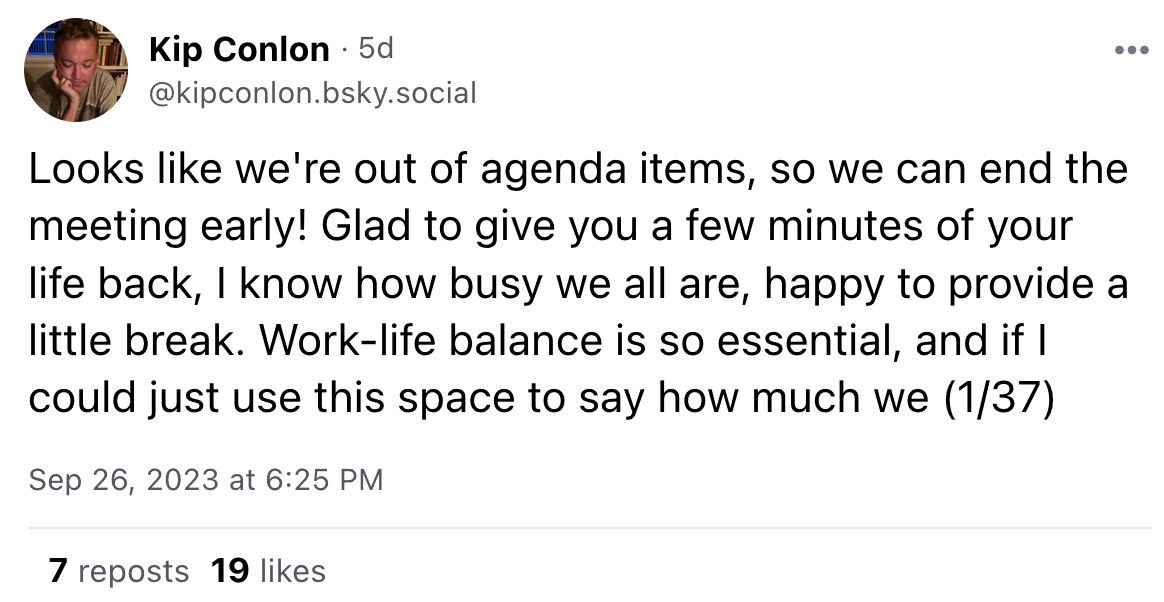Updates from Adam Isacson (October 1, 2023)
Hi, this is Adam. If you're receiving this message, it means you signed up on my website, probably quite a while ago, to receive regular updates. If you'd like to stop getting these, just follow the instructions further down.
This one has a border update; a video about migration; some infographics; links about Tamaulipas, Mexico, El Salvador, and a new UN report on the United States; a couple of recent video clips; links to a few recommended articles; and some upcoming events.
Weekly U.S.-Mexico Border Update: September 29, 2023
Read the whole update at WOLA's website.
- Migration in August Increased 36 Percent Over July
New data published by U.S. Customs and Border Protection (CBP) confirms that migration increased significantly at the U.S.-Mexico border from July to August. The largest increases were in migrants traveling as families, and migrants from Central America, Cuba, and the Andes. Migration continues to increase in September. Migration had declined in the months following the end of the Title 42 pandemic policy, but by now that lull has completely reversed.
- Mexico Pledges New Measures to “Depressurize” Migration
Meeting with the acting commissioner of CBP, Mexican authorities agreed to take measures to reduce concentration of migrants near the common border, including relocating migrants and perhaps even stepping up deportations to some countries. Mexico’s southern-border city of Tapachula continues to fill up as approximately 6,000 migrants arrive every day along Mexico’s border with Guatemala. Migration through Panama’s Darién Gap remains near record levels, and continues to increase through Honduras.
- House Republicans Place Border at Center of Government Shutdown Demands
The U.S. government is likely to shut down on October 1 for lack of a congressionally approved budget. The House of Representatives’ Republican majority is coalescing around demands that the Biden administration and the Democratic-majority Senate agree to a list of hard-line border security proposals and asylum restrictions in exchange for keeping the government open.
Continue here to read the whole thing.
Regarding that last story, about Congress: on Saturday, House Republican leadership capitulated, avoiding a government shutdown by allowing a vote on a bill to keep the government open for 45 more days, with no hard-line border/migration language included.
Video: A lot of migration at the border isn’t “illegal.”
We hear a lot that people at the U.S.-Mexico border are being allowed into the United States “illegally.” Well, no.
For decades, U.S. law has stated that if you fear for your life or freedom if returned to your country, you are entitled to due process. Asylum seekers are doing something legal. And many of them qualify.
Here’s a two-minute explanation:
1 in 300 Hondurans, in a Month
For about every 300 Honduran citizens living in Honduras, 1 was apprehended at the U.S.-Mexico border in August 2023 alone. That’s 35,173 people out of a population of 10.6 million.

Even more citizens from Guatemala arrived at the border in August (37,937), but Guatemala’s population is larger (18.1 million). That is 1 of every 477 Guatemalan citizens living in Guatemala.

These are among dozens of charts illustrating migration trends, updated over the past week to reflect new data released by U.S. Customs and Border Protection (CBP) and the Mexican government's Migration Policy Unit. View them at our Border Oversight website, or as a single, 90-plus-page PDF.
See also:
Humanitarian Parole Recipients by Nationality

While not 100 percent exact—the Department of Homeland Security isn’t sharing exact numbers—this chart gives a pretty accurate sense of which nationalities’ citizens have benefited from the two-year Humanitarian Parole program that the Biden administration has set up for citizens of Cuba, Haiti, Nicaragua, and Venezuela. To qualify for the paroled status in the United States, citizens of those countries must apply online from outside U.S. territory, have a passport, have a U.S.-based sponsor, and undergo a background check.
Haitians have taken fullest advantage of the program since the Biden administration created it for Venezuelan citizens in October 2022, and expanded it to the other three countries in January 2023. CBP reported on September 22:
Through the end of August 2023, over 211,000 Cubans, Haitians, Nicaraguans, and Venezuelans had arrived lawfully under the parole processes. This number includes more than 45,000 Cubans, more than 71,000 Haitians, more than 32,000 Nicaraguans, and more than 61,000 Venezuelans who have arrived in the U.S. More than 47,000 Cubans, more than 84,000 Haitians, more than 39,000 Nicaraguans, and more than 68,000 Venezuelans have been vetted and authorized for travel.
The Dangerous Wait for a CBP One Appointment in Tamaulipas, Mexico
An investigation by four veteran Reuters reporters finds a link between the Biden administration’s use of an app that makes asylum seekers wait for weeks in Mexico, and an increase in attacks on migrants, especially rapes of migrant women, in Mexico’s organized crime-dominated northern border state of Tamaulipas.
U.S. President Joe Biden’s administration in May moved to a new system that required migrants to secure an appointment—via an app known as CBP One—to present themselves at a legal border crossing to enter the United States.
Nine experts, including lawyers, medical professionals, and aid workers, told Reuters the new system has had unintended consequences in the two cities, contributing to a spike in violence.
The high risk of kidnapping and sexual assault in Reynosa and Matamoros is one of the factors pushing migrants to cross illegally, four advocates said. Crossings border-wide surged in September.
Tamaulipas border cities like Matamoros and Reynosa have been notoriously dangerous for years. They’re home to the decades-old Gulf Cartel, the Northeast Cartel (an heir of the Zetas), and other splinter groups that compete violently.

These regional cartels have less-solid control of their territory than do larger national cartels like Sinaloa. This makes them more prone to use violence against newcomers and outsiders—including U.S. citizens, four of whom were kidnapped, two killed, in March when they came to Matamoros for a cosmetic surgery procedure. These criminal groups also make somewhat less money from the drug trade than the larger cartels; such “poorer” criminal groups are more likely to fund themselves by preying on vulnerable people, including migrants.
The Mexican state, especially the hyper-corrupt local government in Tamaulipas, is no protection. Officials often collude with organized crime.
So in recent months, when an asylum seeker uses CBP One, they can travel from elsewhere in Mexico to the border and show up at a U.S. port of entry at their appointed time. They do not need to hire a smuggler. That’s great.
What’s less great is that, when the port of entry is in south Texas (Laredo, McAllen-Hidalgo, and Brownsville, which make up 42 percent of CBP One appointments border-wide—605 out of 1,450 daily spots), the asylum seeker must travel through Tamaulipas territory under organized crime control. In order to be sure not to miss their appointment, they may even stay in this territory, near the port of entry, for days or weeks.
When they do that, the cartels—whose eyes and ears in the region are thorough enough to rival Cold-War East Germany—often find them and demand money. Reuters explains:
[C]riminal groups are still demanding these migrants pay to enter their territory, the experts said.
“Rape is part of the torture process to get the money,” said Bertha Bermúdez Tapia, a sociologist at New Mexico State University researching the impacts of Biden’s policy on migrants in Tamaulipas.
“To see my son growing up, and saying his first words, and him not being here…”
You hear a lot about the popularity of El Salvador’s authoritarian-trending president, Nayib Bukele, who has overseen an anti-gang “state of exception” that has jailed more than 1 percent of the country’s population since March 2022.
The result has been a sharp drop in violent crime that has people throughout the Americas saying “we need a Bukele here.” But there’s a dark side that’s evident to all who care enough not to look away.
One who’s not looking away is filmmaker Amada Torruella, whose short film “La Isla” appears today on the website of the New Yorker. It’s about the family of a man who authorities took away during a sweep early in the state of emergency, even though the part of coastal El Salvador where he lives does not have a significant gang presence.
(The video doesn't embed in the email—view it here)
The New Yorker’s Jonathan Blitzer narrates:
The subjects of Torruella’s film are all female—the wives, mothers, and sisters of the men who have been arrested and sent to prison. “We had just come back from doing some shopping,” one of them says, “when suddenly an officer from the Armed Forces approached him.” She sits on a tidy bed in a small house, sifting through legal papers; her partner has been gone eighteen days. “It’s a lie,” she says, of the government’s accusation. Five months later, she’s still not heard anything from him.
Even though El Salvador’s homicide rate is now purported to be nearly as low as Denmark’s, there is no end in sight to the “state of exception” limiting basic rights, which has been renewed 18 times by Bukele’s legislative supermajority. As Bukele heads for re-election next year even though the country’s laws forbid it, he at least needs to end the pain of thousands of innocents caught up in his sweeps.
2 Videos of Me Talking About Things in Spanish
Here (en español) is an episode of DemocraciaAbierta’s #Unboxing program, in which host Sandra Borda (of Colombia’s Universidad de los Andes) and I discuss the Biden administration’s post-Title 42 changes to immigration policy. We recorded this in late May, so it’s not razor-sharp current, but we do go into some detail that you don’t often get in a video interview.
Here’s an 8-minute segment that aired September 27 on France24 Español. A conversation in Spanish with anchor Rosa Pérez about the possible future spread of fentanyl into Latin America, and why the United States has been unable to contain the spread of the compact, highly addictive opioid.
UN Report Reveals the United States to be Just Another Country with Endemic Human Rights Problems
I read a lot of UN and other independent reports about the human rights situation in Latin American countries. It’s always interesting, though, to read UN reports about the human rights situation here in the United States.
On September 26, the UN Human Rights Council published the report of a group of experts who visited several U.S. cities in April and May 2023. (Among them was Juan Méndez, who is very well known to Latin America specialists for many past roles, including former president of the Inter-American Human Rights Commission and former director of the Inter-American Institute of Human Rights.)
The experts’ report is direct and hard-hitting. Though the United States prides itself as a bastion of liberty and democracy, much of the UN experts’ language could just as easily apply to a Latin American nation for which I’ve advocated limits on U.S. security assistance.
The report is available here as a PDF, and at the UN High Commissioner for Human Rights website as a Word (.doc) file. On my website, I included some of the excerpts that most stood out to me, with passages that I found especially jaw-dropping emphasized with highlighting.
Links from the Past Week
Sugeyry Romina Gandara, Los Padres de Ayotzinapa Cumplen 9 Anos Sin los 43 y Con Fuertes Reclamos al Ejercito (SinEmbargo (Mexico), Tuesday, September 26, 2023).
Los padres de Ayotzinapa cumplen 9 años sin los 43 y con fuertes reclamos al Ejército
Claire Dorfman, Kate Doyle, Keeping the Secrets: U.S. Silence About Ayotzinapa (National Security Archive, Tuesday, September 26, 2023).
"Mexican Sensitivities" Trump Transparency
Defending Human Dignity at the U.S. - Mexico Border: U.S. Customs and Border Protection's Ongoing Discrimination, Violence, and Impunity (Southern Border Communities Coalition, Tuesday, September 26, 2023).
CBP agents are routinely accused of a range of abuses, including racial profiling, illegal stops and searches, mistreatment, and excessive use of force
Catalina Lobo Guerrero, Gianfranco Huaman, Migrar: El Hemisferio en Movimiento (Ojo Publico (Peru), Friday, September 22, 2023).
Esta investigación de la Red Investigativa Transfronteriza de OjoPúblico analiza los datos de dos décadas de migración, sus causas, rutas y motivaciones
Eileen Sullivan, Jack Healy, Miriam Jordan, One Day on the Border: 8,900 Migrants Arrested, and More on the Way (The New York Times, Friday, September 22, 2023).
A sudden surge of people from around the globe is showing up at the southern border, despite dangers and deportations. 'If you don't take risks, you cannot win,' said one man who traveled from Peru
Latin America-Related Events in Washington and Online This Week
(Events that I know of, anyway. All times are U.S. Eastern.)
Tuesday, October 3
- 11:00-12:30 at IDPC Zoom: In defence of decriminalisation –a baseline upon which to build sustainable drug policy (RSVP required).
- 2:00-4:00 at brookings.edu: Violent crime in South America (RSVP required).
- 4:30-5:30 at the Wilson Center and online: ‘Primavera Democrática’: A Conversation with President-Elect Bernardo Arévalo of Guatemala (RSVP required).
Wednesday, October 4
- 12:00-1:30 at Georgetown University: Elections in Argentina: Will the Country Turn to the Far Right? (RSVP required).
- 6:00-8:00 at Georgetown University: The Dictator’s Destructions: Facing Pinochet’s Power in Chile (RSVP required).
Thursday, October 5
- 10:30-12:00 at George Washington University: Expanding South-South Climate Change Collaboration (RSVP required).
- 11:00-1:00 at atlanticcouncil.org: Advancing Caribbean development through women’s empowerment (RSVP required).
- 6:30-8:00 at IPS: Inside Biden’s Cuba Policy: Film Screening (RSVP required).
And Finally




